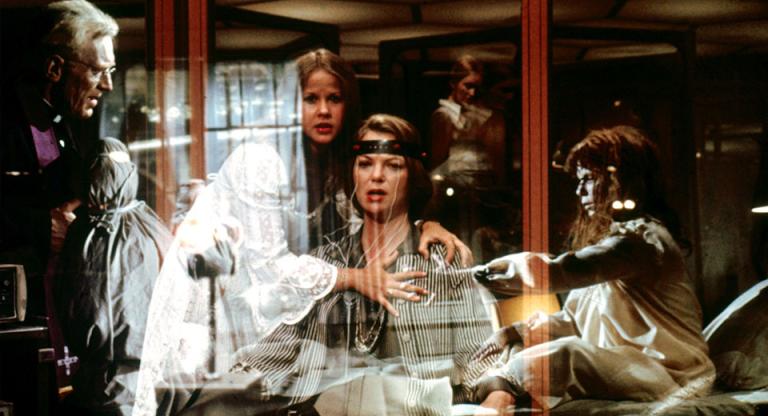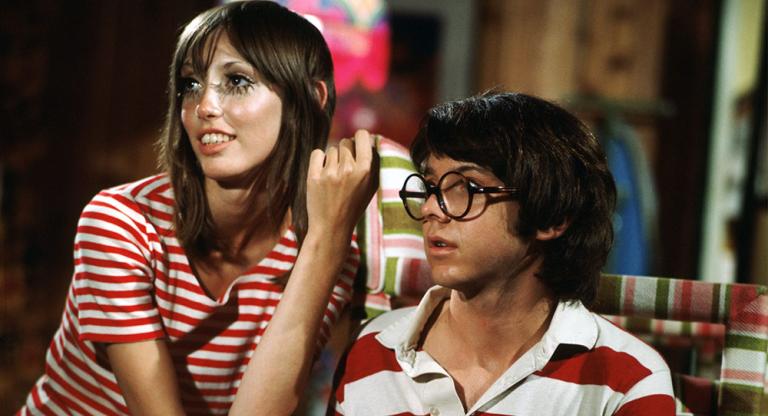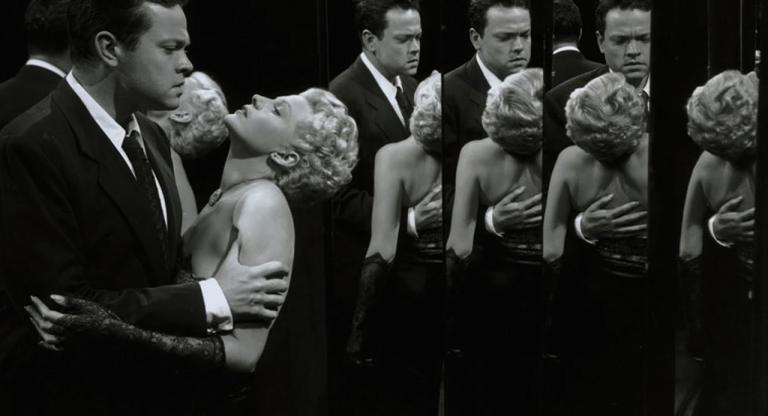A forgotten curio in a filmography full of them, John Boorman’s Leo the Last (1970) tosses a smorgasbord of heady gags at postwar British class conflict with predictably messy and rousing results. If charitably graded on the curve of social progress, its staging of white messianism and revolutionary politics largely passes the smell test, excluding its occasional lapses from critique of the former to its unconscious embodiment. Boorman’s career is marked by a fascination with bourgeois whiteness in confrontation with its others, whether they be rednecks, hippies, African immigrants, or Indigenous tribes. These exchanges tend to culminate in moments of self-discovery by white heroes after their lordliness is destabilized, but the vertigo of their unmasking makes a deeper impression.
Marcello Mastroianni plays Leo, a socially inept prince who arrives from the continent to claim his inheritance and finds a cul-de-sac populated by impoverished African immigrants, terminating in his handsome mansion. While servants mutter about his interpersonal shortcomings and scheme to arrange a marriage for him, Leo, avid ornithologist, is content to observe the pigeons outside of his window through a spyglass. The birds lead him to witness a scam perpetrated by a neighbor, Roscoe (Calvin Lockhart), who traps one and then releases it in a grocery store so as to create a diversion for his theft of a frozen turkey. With a discomfiting gaze through Leo’s spyglass, we see Roscoe’s family lay hands on the stolen bird as though it were a holy relic. A few more vignettes of have-not indignity later, Leo professes an affection for “all colors” of people, but “especially black.” His fellow aristocrats, depicted hoarding arms and greedily devouring pheasant barehanded, are naturally appalled by his class treason. During some hilarious aquatic medical quackery, Leo has an epiphany: he can help the unfortunate. He starts by gifting groceries and escalates quickly to surrendering his entire estate.
Indebted to Tati and Fellini, Boorman stages the film’s antics—Marxian quips, slapstick pratfalls, grotesque debaucheries—across multiple planes inside his roving frames. To these influences he adds groovy sonic flourishes like overlapping dialogue and hip original songs by composer (and pal of Jim Morrison) Fred Myrow. In the middle of it all is Mastroianni as the naive son of privilege who has to be informed that he is the one collecting rent from the people he wishes to lift out of poverty. The film may be more concerned with the budding conscience of a wealthy interloper than the inner lives and social prospects of the underclass, but this familiar narrative constraint can’t entirely negate Boorman’s joyful vision of class upheaval.
Leo the Last screens on 35mm at 6:45pm October 12 at Metrograph. It is also streaming on Paramount+.






